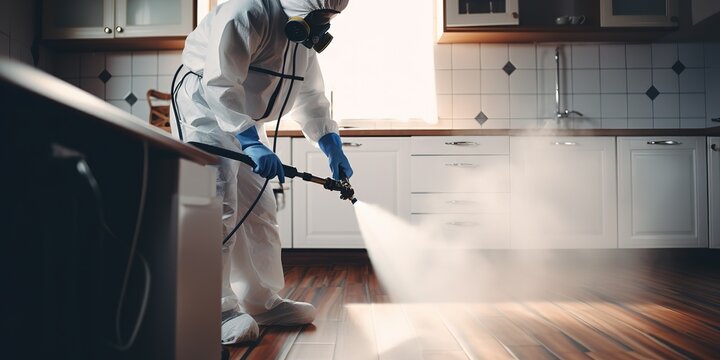When it comes to pest control, traditional methods often involve harsh chemicals that can be harmful to both the environment and your health. As consumers are becoming more conscious of what they bring into their homes, the search for safer, more sustainable solutions has led many to explore the fascinating world of essential oils. In this article, we will delve into how to use essential oils for pest control, unlocking the myriad of benefits they offer in keeping your space pest-free. We'll share exclusive tips and tricks to empower you to engage in a more holistic approach to pest management.
Imagine facing a summer filled with pesky mosquitoes buzzing around your backyard or unwelcome ants invading your kitchen. Many might think the solution lies in harmful sprays and traps, but essential oils provide a natural yet life-changing alternative. Not only do these oils smell delightful, but they also possess amazing properties that can deter pests effectively!

Understanding Essential Oils
Before we dive deeper into how to use essential oils for pest control, it's crucial to understand what these oils are. Essential oils are concentrated extracts derived from plants, containing potent properties that provide a variety of benefits. They are known for their aroma, and many have been used in aromatherapy, beauty, and even medicine for centuries. However, their ability to act as natural repellents is gaining much-needed attention.

Top Essential Oils for Pest Control
Several essential oils have proven particularly effective against various pests. Let's take a closer look at some of the most popular ones:
1. Tea Tree Oil
Renowned for its antibacterial and antifungal properties, tea tree oil also acts as a potent insect repellent. Its strong scent is unpleasant for pests like mosquitoes, ants, and cockroaches. A simple solution involves mixing a few drops of tea tree oil with water in a spray bottle. Spray this mixture around entry points and common pest infested areas in your home.
2. Peppermint Oil
Peppermint oil is not just refreshing; it's also effective in repelling rodents and insects alike. The strong menthol aroma disturbs their sensory receptors, making it challenging for them to tolerate. You can create a peppermint oil spray to use around your home by combining water and a few drops of this essential oil.
3. Lavender Oil
Not only does lavender oil add a calming aroma to your space, but its repelling properties can keep pests like mosquitoes, flies, and moths at bay. Simply mix lavender oil with a carrier oil and apply it to your skin as a natural insect repellent during outdoor activities.
4. Eucalyptus Oil
Eucalyptus oil has a unique scent that is often disliked by insects. This oil can repel mosquitoes, fleas, and even cockroaches. Utilize eucalyptus oil in a diffuser at home or mix with water for a spray solution.
5. Clove Oil
Clove oil contains compounds that can effectively deter insects. It's particularly useful for combating ants and cockroaches. Like the other essential oils mentioned, clove oil can be mixed with water and used for spraying.

How to Use Essential Oils for Pest Control
Now that we've covered some effective oils, let's explore practical applications for integrating them into your pest control routine.
1. Create Your Own Pest Spray
A great way to start using essential oils is by making your pest spray. Combine 10-15 drops of your chosen essential oil with water in a spray bottle. Shake the bottle well before using and spray around pest-prone areas in your home.
2. Diffusion
Using a diffuser can help spread essential oil throughout your space, creating an environment less appealing for pests. Add a few drops of essential oil to a diffuser and turn it on to keep insects at bay.
3. Cotton Balls Method
If you're dealing with pests within confined spaces, consider placing cotton balls soaked in essential oil in those areas. For instance, placing clove oil-soaked cotton balls in kitchen cabinets can deter both ants and cockroaches.
4. Homemade Candles
Get creative by making your own pest-repelling candles. You can add essential oils like citronella, eucalyptus, or peppermint to homemade candles to keep insects away, especially while you entertain outdoors.
5. Use Essential Oil Soaps
Incorporating essential oils into your cleaning routine not only makes your home smell fantastic but can also act as a natural pest deterrent. Choose natural soaps infused with essential oils for an added layer of protection.

Safety Precautions When Using Essential Oils
While essential oils present a natural alternative for pest control, it's crucial to exercise caution. Here are some safety tips:
- Always perform a patch test before applying any essential oil to your skin.
- Keep essential oils out of reach of children and pets.
- When diffusing oils, ensure proper ventilation to avoid respiratory irritation.
Additional Resources on Pest Control
For more information on pest control or effective methods, check these sources: Pest Control Treatment, Commercial Pest Control, Pest Control Methods.
FAQs
1. Are essential oils safe for pets?
While many essential oils are safe, some can be toxic to pets. Always research the oils you choose to use around animals.
2. How effective are essential oils compared to chemical pesticides?
Essential oils can be effective, but their potency might vary. They are often best used as preventive measures rather than complete solutions for severe infestations.
3. Can I mix different essential oils?
Yes, you can mix different essential oils to create a blend. Just ensure that you do not exceed the recommended concentrations in your mixtures.
As an Amazon Associate, I earn from qualifying purchases.
